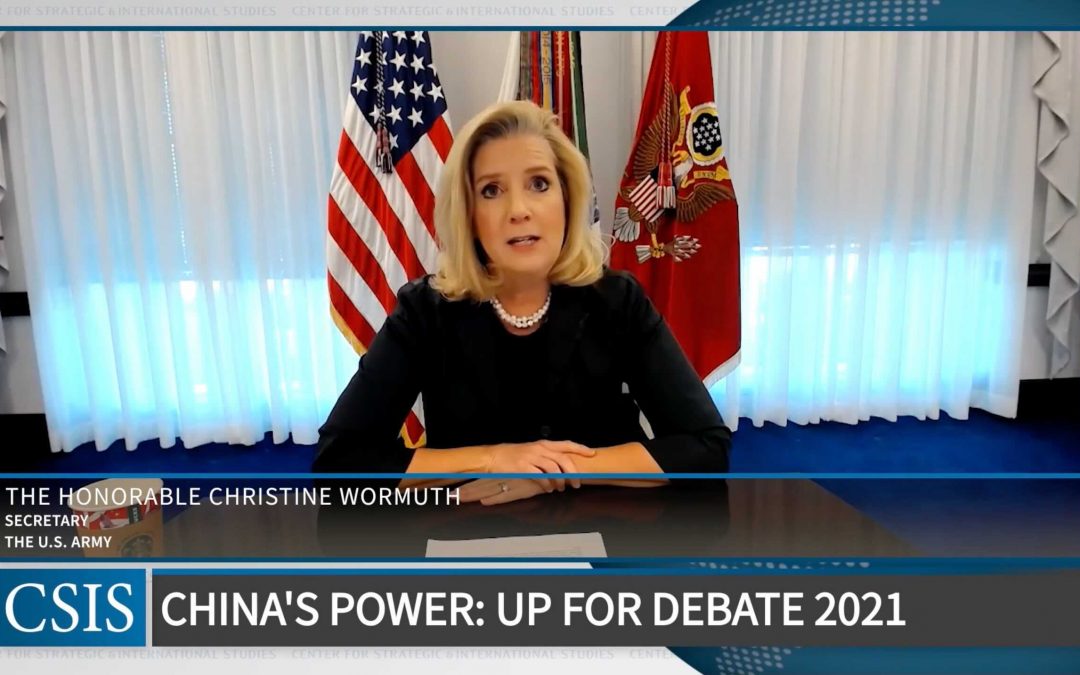WASHINGTON –– China’s rapid economic, technological and military expansion over the past two decades poses serious competition and an imminent threat to the United States, according to the Secretary of the U.S. Army, Christine Wormuth.
“We shouldn’t be seeking, in my view, a second Cold War, or asking our allies and partners to choose between the United States and China. But we also should not underestimate China and the challenge it poses for the United States,” said Wormuth during a discussion panel with the Center for Strategic and International Studies on Wednesday.
This discussion followed President Biden’s recent exchange with Chinese President Xi Jinping during a November virtual summit where the two heads of state reached a point of contention over the future of the self-ruled island of Taiwan. Where the Chinese government sees Taiwan’s separation from the mainland as a temporary situation and has openly discussed hopes of a reunification, the U.S. government has offered support to Taiwan should its independence be threatened by forceful intervention from China.
“China’s focus on modernizing its military capabilities will strengthen its ability to coerce Taiwan, rival claims on territorial disputes, project power globally, and counter interventions along the PRC’s periphery,” Wormuth said.
China’s growing presence in the Indo-Pacific region and the world overall is not only due to its advanced military personnel, army combat units, rocket missiles and nuclear arsenal, but also because of its space, cyber, electronic, information and psychological warfare capabilities, according to Wormuth.
In order to counter these risks, Wormuth proposed strategies that the U.S. military should adopt.
She said that the United States has a great advantage of having several allies and partners in the region, and spoke of the Pacific Pathways initiative that aimed to expand the U.S. military’s engagement in the Pacific while keeping spending to a minimum. In addition, she said that the army would curate a presence over time that would allow it to suppress enemy attacks, regardless of the method used by the aggressor.
When asked by CSIS’s Asian Security Senior Fellow, Bonny Lin, if the United States planned on expanding the army’s current posture in the region, Wormuth said that while a military footprint already existed in the Indo-Pacific space, it was heavily oriented towards the northeast instead of the southeast.
“There is very much a desire to be able to expand our access and basing arrangements more into Southeast Asia, because if we were able to do that, we would have a more dispersed posture that would give us much more flexibility,” Wormuth said.
Wormuth said that it was in the interest of both the United States and its allies if the American military could explore and expand its posture in the region over time.

